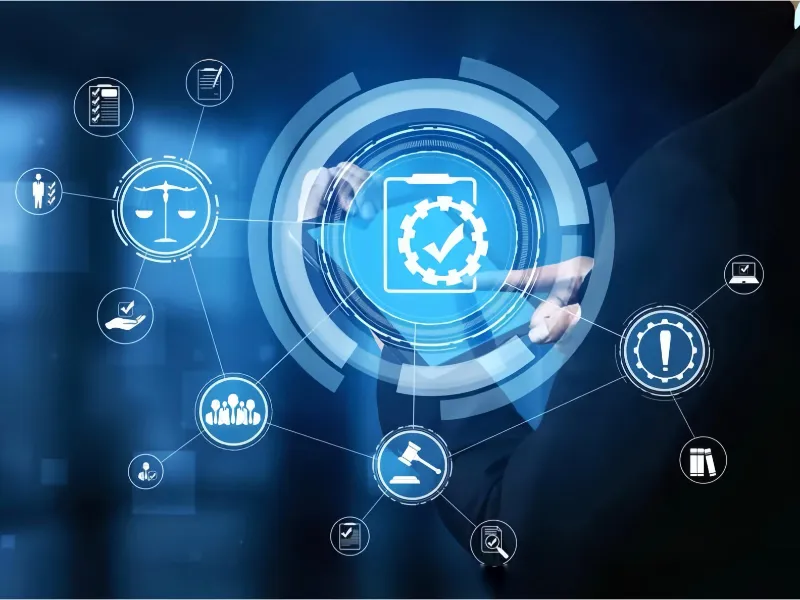- Infrastructure automation is an alternative to manually configuring and orchestrating infrastructure in cloud and on-premises environments.
- The benefits of infrastructure automation are mainly reliability, repeatability, and reduced cost of evaluating and resolving errors.
The purpose of a data governance framework is to ensure the integrity, internal distribution, and security of data. The lack of a framework leads to poor data quality and compliance issues, resulting in data silos and inconsistent reporting. Data governance frameworks help organisations standardise and unify data by democratising data accessibility and trust.
What is a data governance framework
A data governance framework is a set of rules, processes, and responsibilities that dictate how an organisation collects, organises, stores, and uses its data. The goal of a data governance framework is to set a standard on how data is managed to ensure its integrity, leveraged by internal teams, and protected from security risks.
Also read: 5 data governance roles and responsibilities
Importance of data governance frameworks
Without a data governance framework in place, companies can’t guarantee data quality or compliance with privacy regulations. This opens the door to mismanaging customer data, which could land you in hot water legally (resulting in hefty fines and reputational damage).
In the absence of a data governance framework, individual departments follow their own standards and processes, creating data silos that quickly snowball into inefficiencies. Instead of consulting a single source of truth within an organisation, employees only have insight into the data collected with their own tools. This creates blind spots in understanding, and sometimes mismatched reporting between databases – resulting in a distrust of data altogether.
Also read: Strategic checklist for effective cloud data migration
Benefits of a data governance framework
Data democratisation
A data governance framework allows you to establish data democratisation, giving employees of all technical skill sets the ability to access and act on data. This autonomy and confidence in data allow teams to accurately set goals, measure performance, strategise, and discover new opportunities.
Data democratisation has been notoriously difficult for businesses to achieve in the past few years. 83% of companies admit they’re unable to turn fragmented data points into comprehensive user records. It’s one of the reasons behind the growing adoption of customer data platforms (CDP) to help manage and centralise customer data so everyone can benefit from it.
Standardised and trustworthy data
An important aspect of good data governance is clear guidelines on how to label and categorise data. Guidelines allow you to standardise data that the entire organisation can trust. Efforts to standardise data may include creating a shared data dictionary to ensure consistency across teams in what is being tracked, and their naming conventions.
Data governance framework models and examples
Before we dive into specific examples of data governance frameworks, we should first touch on the five main data governance models. The models are based on how data governance decisions will flow through your organisation.
1. Top-down: Company leadership implements data governance policies that are then passed down to individual business units and shared with the rest of the company.
2. Bottom-up: Employees at the lower levels implement data governance practices, such as standardising naming conventions, which spread to the higher levels of the organisation.
3. Centre-out: The team or individual responsible for data governance sets data standards that the entire organisation follows.
4. Silo-in: Various departments come together to align on data governance while keeping in mind the needs of each group.
5. Hybrid: Data governance decisions involve different levels of the organisation. For example, a company uses a centre-out model to suggest a course of action but employs a top-down model to make the final decision.

